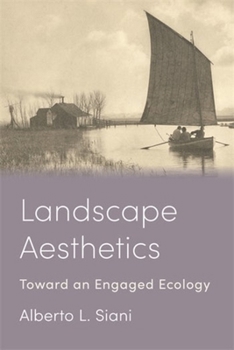Landscape Aesthetics: Toward an Engaged Ecology
The notion of landscape typically seems innocuous, associated with leisure and contemplation. Likewise, aesthetics is often seen as apolitical, a matter of subjective tastes and preferences. This book challenges the common understanding of these categories as disengaged and demonstrates how uniting landscape studies and philosophical aesthetics opens new ways of addressing both the environmental crisis and the crisis of the humanities.
Format:Paperback
Language:English
ISBN:0231213670
ISBN13:9780231213677
Release Date:July 2024
Publisher:Columbia University Press
Length:256 Pages
Weight:0.84 lbs.
Dimensions:0.6" x 6.0" x 9.0"
Customer Reviews
0 rating





